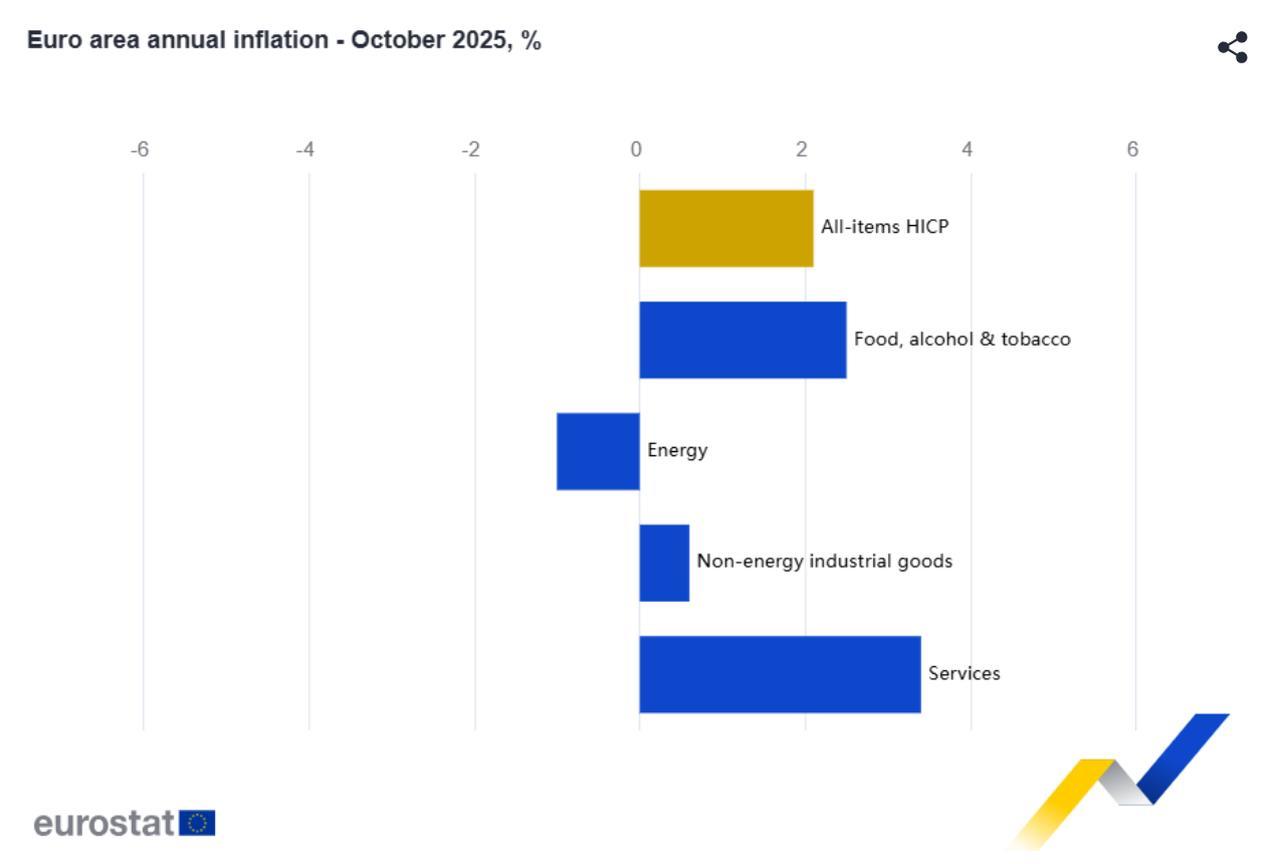
Eurozone inflation slowed to 2.1% in October, edging closer to the European Central Bank’s (ECB) 2% target, according to data published Friday by Eurostat.
The easing was driven by a steeper fall in energy prices and a moderation in food and beverage costs, signaling continued progress in the bloc’s fight against high prices.
Energy prices fell by 1% in October, compared with a 0.4% decline the previous month, Eurostat data showed. Price increases for food, alcohol, and tobacco also slowed to 2.5%, down from 3% in September.
Consumer prices in the Eurozone’s two largest economies, Germany and France, rose 2.3% and 0.9% respectively over the same period, reflecting a broader trend of easing inflation across the bloc.
Core inflation—which excludes volatile items such as energy, food, alcohol, and tobacco—remained unchanged at 2.4% in October. Analysts had expected it to ease slightly to 2.3%, suggesting that underlying price pressures remain persistent.
The data is likely to reassure ECB policymakers that inflation is moving in the right direction but also justify their decision to maintain a cautious stance on monetary easing.

On Thursday, the ECB kept all three of its key interest rates unchanged for a third consecutive meeting: 2% for the deposit facility, 2.15% for the main refinancing operations, and 2.4% for the marginal lending facility.
In its statement, the bank said that inflation across the euro area has moved close to its medium-term target but warned that the outlook remains uncertain due to ongoing geopolitical tensions, fluctuating energy costs, and weaker global trade.
Eurostat figures also showed that the Eurozone economy expanded by 0.2% in the third quarter of 2025 compared with the previous quarter, supported mainly by growth in France and Spain. Germany and Italy—Europe’s first and third-largest economies—recorded stagnant output, though Germany narrowly avoided a recession.
On an annual basis, Eurozone gross domestic product (GDP) grew 1.3% in the third quarter, while the European Union as a whole recorded 1.5% growth.